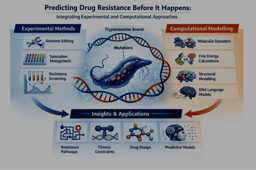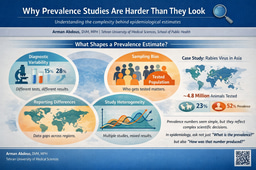A mixed methods study of using Wasta in healthcare services in Palestine: predictors, consequences and proposed solutions
Published in Business & Management
This unique study conducted in 2021-22 in the occupied Palestinian territories and Gaza examined the use of wasta. Examining the use of wasta in healthcare in Palestine, we employed qualitative (ten health professionals and eighteen patients from Gaza and the West Bank) and quantitative research methods, surveying more than 700 individuals. Where the official processes to reach a goal are corrupt, bureaucratic, or inefficient persons often turn to using wasta to overcome barriers.
Participants included refugees living in camps, urban, and rural dwellers from the age of 18. Approximately one-third (34%) stated they used wasta to get a health service in the last year, 39.3% from Gaza and 31.6% from the West Bank. Wasta is reportedly also used within healthcare institutions by some employees to gain unfair advantages over others. Our interviews also highlighted social and organizational-level predictors and consequences of wasta. The potential predictors include scarcity of resources (material, human, and financial), cultural factors, and inefficient administration. The consequences of wasta include inequities in healthcare, decreased healthcare professionals’ motivation and morale, and lower service quality.
This study considerably enriched the conceptual definition of wasta use in healthcare settings by elucidating the multifaceted mechanisms through which it manifests, its predictors, and its consequences. Wasta can be employed by utilizing social connections, political affiliations, family ties, and economic means. This study confirmed previous research about the role of organizational, social, and economic factors in causing wasta.
The utilization of wasta in healthcare leads to outcomes such as disparities, reduced staff motivation, and compromised service quality. Through wasta and social connections, some patients may gain unfair advantages over others. Our interviews revealed that when staff are promoted and rewarded through wasta or social connections rather than for hard work, dedication, or performance, inequities become manifest. These unfair practices cast a negative shadow on the institution and its services by eroding the morale and motivation of its personnel.
Predictors and consequences of wasta in countries where official processes to reach a goal are corrupt, bureaucratic, or inefficient, individuals resort to wasta to overcome oppressive processes [1]. Patriarchy, tribalism, religious and political strife, inequities, discrimination, and lack of trust in public institutions are contextual vices within which wasta proliferates [2, 3].
The higher prevalence of wasta in refugee camps and in Gaza is probably because these communities have faced disadvantages for generations, enduring various difficulties and injustices. It is possible that their perception, based on personal experiences or hearsay, is that utilizing wasta can help improve their situation. In the camps, residents are bound by a common history of forced displacements and are living in crowded conditions. Political activism is stronger in camps.
Wasta results in inequalities by depriving women and those with lower social networks from accessing opportunities [4, 5]. Wasta encourages people to invest more in social networks rather than other more useful forms of social capital [6]. Wasta could decrease the utilization of healthcare services via a lack of trust in the system. Additionally, wasta may lower healthcare providers’ motivation, satisfaction, and morale. Our interviews highlighted social and organizational-level predictors and consequences of wasta. The consequences of wasta include inequities in healthcare, decreased healthcare professionals’ motivation and morale, and lower service quality.
It is essential to optimize processes for efficiency, alleviate financial strains, and implement accountability measures in the healthcare domains.
- Horak S, Afiouni F, Bian Y, Ledeneva A, Muratbekova-Touron M, Fey CF. Informal networks: Dark sides, bright sides, and unexplored dimensions. Manag Organ Rev. 2020;16:511–42.
- Hutchings K, Weir D. Guanxi and Wasta: A comparison. Thunderbird Int Bus Rev. 2006;48:141–56.
- Alsarhan F, Ali S, Weir D, Valax M. Impact of gender on use of wasta among human resources management practitioners. Thunderbird Int Bus Rev. 2021;63:131–43.
- Abalkhail JM, Allan B. “Wasta” and women’s careers in the Arab Gulf States. Gend Manag Int J. 2016;31:162–80.
- Banihani M. Empowering Jordanian women through entrepreneurship. J Res Mark Entrep. 2020;22:133–44.
- Baranik L, Gorman B, Wright N. Wasta and its relationship to employment status and income in the Arab Middle East. Curr Sociol. 2021;:00113921211024705.
Follow the Topic
-
BMC Health Services Research

An open access, peer-reviewed journal that considers articles on all aspects of health services research, focusing on digital health, governance, policy, system quality and safety, delivery and access, financing and economics, implementing reform, and the workforce.
Related Collections
With Collections, you can get published faster and increase your visibility.
Disability-inclusive health systems
BMC Health Services Research is calling for submissions to our Collection on Disability-inclusive health systems.
Disability-inclusive health systems are essential for ensuring equitable access to health services for all individuals, including those with disabilities. This Collection aims to explore the current state of health systems and their ability to provide inclusive care that meets the diverse needs of people with disabilities. By examining the barriers faced and the strategies employed to create more accessible health services, this Collection will contribute to a better understanding of how to integrate disability considerations into health system planning and implementation.
The significance of this research lies in its potential to inform the development of health policies that are inclusive and equitable. Advances in this field have highlighted the importance of stakeholder engagement, training for health professionals, and the implementation of assistive technologies in promoting disability-inclusive health services. Furthermore, understanding the lived experiences of individuals with disabilities can provide valuable insights into how to design health systems that are responsive and respectful of their needs.
Topics for submission:
Strategies for disability-inclusive health service delivery
Barriers and gaps to accessing health services for individuals with disabilities
Impact of training on health professionals in disability inclusivity
Use of assistive technologies in health systems
Rehabilitation service delivery and disability inclusion
Exploration of interventions to promote disability inclusive health service delivery
This Collection supports and amplifies research related to SDG 3 (Good Health and Well Being) and SDG 4 (Quality Education).
All manuscripts submitted to this journal, including those submitted to collections and special issues, are assessed in line with our editorial policies and the journal’s peer review process. Reviewers and editors are required to declare competing interests and can be excluded from the peer review process if a competing interest exists.
Publishing Model: Open Access
Deadline: Apr 30, 2026
Age-friendly health systems
BMC Health Services Research is calling for submissions to our Collection, Age-friendly health systems.
As the global population ages, the need for age-friendly health systems becomes increasingly urgent. Age-friendly health systems are designed to meet the unique needs of older adults, ensuring that they receive appropriate, effective, and compassionate care. This Collection seeks to explore the various dimensions of age-friendly health systems, including the integration of geriatric principles into healthcare delivery, the role of interdisciplinary teams, and the importance of tailoring services to accommodate the diverse health needs of older populations.
Addressing the challenges faced by older adults in healthcare settings is critical for improving health outcomes and enhancing the quality of life for this demographic. Recent advancements in geriatric care models, technology integration, and patient-centered approaches have shown promising results in enhancing the experience and satisfaction of older patients. By focusing on the unique health goals and preferences of older adults, we can create systems that prioritize their well-being and foster healthier aging.
Continued research in this area can lead to strategies that further refine and develop age-friendly health systems. As we gather evidence on effective practices, we may uncover new frameworks for collaboration among healthcare providers, caregivers, and patients. This knowledge could pave the way for policies that promote equitable access to care and facilitate the integration of supportive services tailored specifically for older adults.
We invite submissions on a range of topics, including but not limited to:
Comparing care received by older adults and younger adults
Improving care for older adults
Differences in health goals of older vs. younger adults
The impact of social determinants of health on older adults
Strategies for enhancing caregiver support and training
Evaluating the effectiveness of age-friendly interventions
Exploring the role of community resources in supporting older adults
Addressing mental health needs within age-friendly health systems
This Collection supports and amplifies research related to SDG 3 (Good Health and Well-being) and SDG 10 (Reduced Inequalities).
All manuscripts submitted to this journal, including those submitted to collections and special issues, are assessed in line with our editorial policies and the journal’s peer review process. Reviewers and editors are required to declare competing interests and can be excluded from the peer review process if a competing interest exists.
Publishing Model: Open Access
Deadline: Mar 19, 2026





Please sign in or register for FREE
If you are a registered user on Research Communities by Springer Nature, please sign in